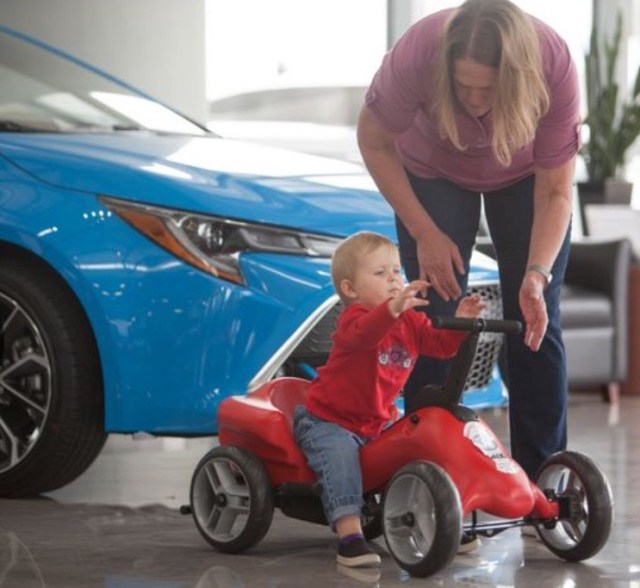As the world becomes more accepting and inclusive of all people, it’s heartening to see companies developing products and services specifically aimed at children with special needs. According to a recent federal study, 6.7 million American students have special needs. Kids are kids, but special needs children have unique challenges that can be made easier when companies create products that specifically address those needs.
A great product or service for kids with special needs can only be created by conducting research with parents, pediatricians, therapists and most importantly, children. It was through conversations like these that I realized the Pumper Car, which I originally brought to market as a toy, had incredible potential as a mobility device for kids. Due to the nature of our product, we wanted the Pumper Car to not only improve health and connections among kids but be something that kids wanted to use simply because it’s fun.
Products aimed at the special needs market can help kids navigate physical or mental challenges and encourage inclusivity. From legacy corporations to start-ups, a growing number of innovative products are making life easier for special needs families.
Barbie Evolves
For a doll that used to be the epitome of one-dimensional beauty, Mattel’s Barbie is making big strides, releasing dolls with prosthetic limbs and wheelchairs this past June. The new dolls are part of the Barbie Fashionista line, which aims to offer kids a greater diversity of beauty.
“As a brand, we can elevate the conversation around physical disabilities by including them into our fashion doll line to further showcase a multi-dimensional view of beauty and fashion,” Mattel said in a statement.
To create the doll, Mattel worked with a teen activist who was born without a left forearm. In addition to the new dolls, Barbie’s DreamHouse will now have a wheelchair ramp.
Adaptable Apparel
Every kid wants to wear clothes that are stylish and on-trend. Target’s popular Cat & Jack line added adaptive apparel made for toddlers and children with disabilities. The brand used its current styles and added features like side and back snaps, zip closures and hidden openings for abdominal access. The clothes make getting dressed easier, and with most items under $20, also affordable.
Travel Time
Mesa, Arizona (just outside of Phoenix) is the first destination in the world to earn the Autism Certified City designation. For over a year, businesses in the hospitality arena underwent training to serve the Autism Spectrum Disorder traveler of any age. This means that the city’s hotels, attractions, restaurants, and other venues are specially trained to service the needs of these travelers from trip planning and throughout a stay.
American Girl
The wildly popular American Girl doll line made a name for itself by offering children the opportunity to customize a doll that looks like a mini-me of its creator. The only problem was that while there are a host of skin, hair and eye colors, there aren’t really any dolls that reflect special needs. What the line does offer are accessories like a wheelchair, crutches, hearing aids, and diabetes kit. Dolls can also be made hairless for children who have lost hair due to illness.
Consumers with special needs represent a $1 billion market segment, which businesses are finally stepping up to serve. Expect to continue to see products designed specifically for special needs children, as well as more diversity in advertising.











